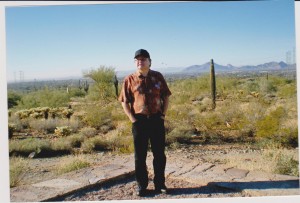“God is in the details.”–Gustave Flaubert
Moments of being are those more elusive transitory times when one is especially aware of the sublime pleasure and excitement of a given moment, and how it is unique and distinctly different from the many more ordinary, mundane moments in the passing flow of daily life. Moments of being tend to ‘announce’ or ‘proclaim’ themselves with an extreme obvious feeling of positiveness. At the time that they are experienced, the person (and sometimes persons) involved know and sometimes even share the specialness, uniqueness, and importance of the moment. Often there is a definite pleasurable sense of discovery, revelation, or epiphany about the moment in question.
The “being” part of whatever moment usually manifests itself in/as a heightened sense of being or becoming. A moment of being might very well also be the consciousness of significant change–possibly of imminent or possible change–an awareness of great hitherto inexperienced individual or situation potential. In any case, moments of being are primarily inner individual experiences in response to context and external events.
It is not surprising that moments of being comprise our most treasured memories of important things that have happened to us in the past. Think back to when you had special recognition that no one else you’ve known has had such as being chosen by your principal to receive the gift of a painting for the school’s official opening, or of being allowed the privilege of playing disc jockey in charge of your high school’s noon-hour intercom music. Often it is these sorts of special defining moments which determine one’s direction in life, too, career-wise.
Often moments of being have to do with relationships such as the first time one spoke to or spent time closely with a particular person. Experiences with members of the same or opposite sex in a first-time intimate way can introduce us to aspects of ourselves and others that ‘mark us’ for life.
Moments of being sometimes occur in moments of learning through the arts such as when we read a very emotionally moving book such as To Kill a Mockingbird, experience a powerful piece of music such as Beethoven’s “Diabelli Variations” or visit a gallery containing Monet’s enormous panels of water-lillies. In such experiences, we are moved through our senses to experience something deep and true about the human condition that connects us with other people and other times. Moments of being can have that kind of broadening, enriching impact and influence.
We know, too, that nature can also create moments of being, an effect we attain anytime we go to the mountains, the seaside, or desert. Under favorable active or contemplative circumstances, interaction with nature can produce deep inner effects that go way beyond words to transportive spiritual satisfactions, akin to those we might call religious. In that sense, ‘God’ can be found in the “details” that make up whatever moving moments of being.
As we look back on our lives, we find that our lives can, to a large extent, be defined and understood by the many personal moments of being that we have been lucky to experience and sometimes fortunate to share and communicate to others. To them, we should pay special attention, as we should, indeed, to all passing, precious transitory moments, regardless of their relative ‘shine’ in the great scheme of things.
“We have only this moment, sparkling like a star in our hand…and melting like a snowflake.”–Marie Beynon Ray
……………………………………………………………………..
The title of this ‘probe’ (a McLuhan term) comes from a phrase by Virginia Woolf. I have tried to keep some of the meanings she intended, but it seems to me the term is broader, more connotative, and self-defining. The “details” are in many ways the most important aspects of moments of being, as well, incidentally, as this blog. Viewed another way, they are how we know what we know. From pondering these for possible meanings, the general patterns and larger insights emerge.
Moments of being tend to be personal, though when other people figure in them, they become larger and often more connective. (In a meditation still to come, I write that the freedom of two, for instance, can exceed and be more profound than the freedom of one.) Consciousness and reflection are necessary to recognize, understand, and appreciate moments of being. I believe we seek moments of being, although these can happen quite wonderfully on their own spontaneously. And sometimes, if we are fortunate and paying attention, we can be conscious of moments of being as they happen, savouring them as they do. In that instance, moments of being can be glorious, inspiring, and loving.
“Keep a green tree in your heart and perhaps a singing bird will come.” –-Chinese proverb










